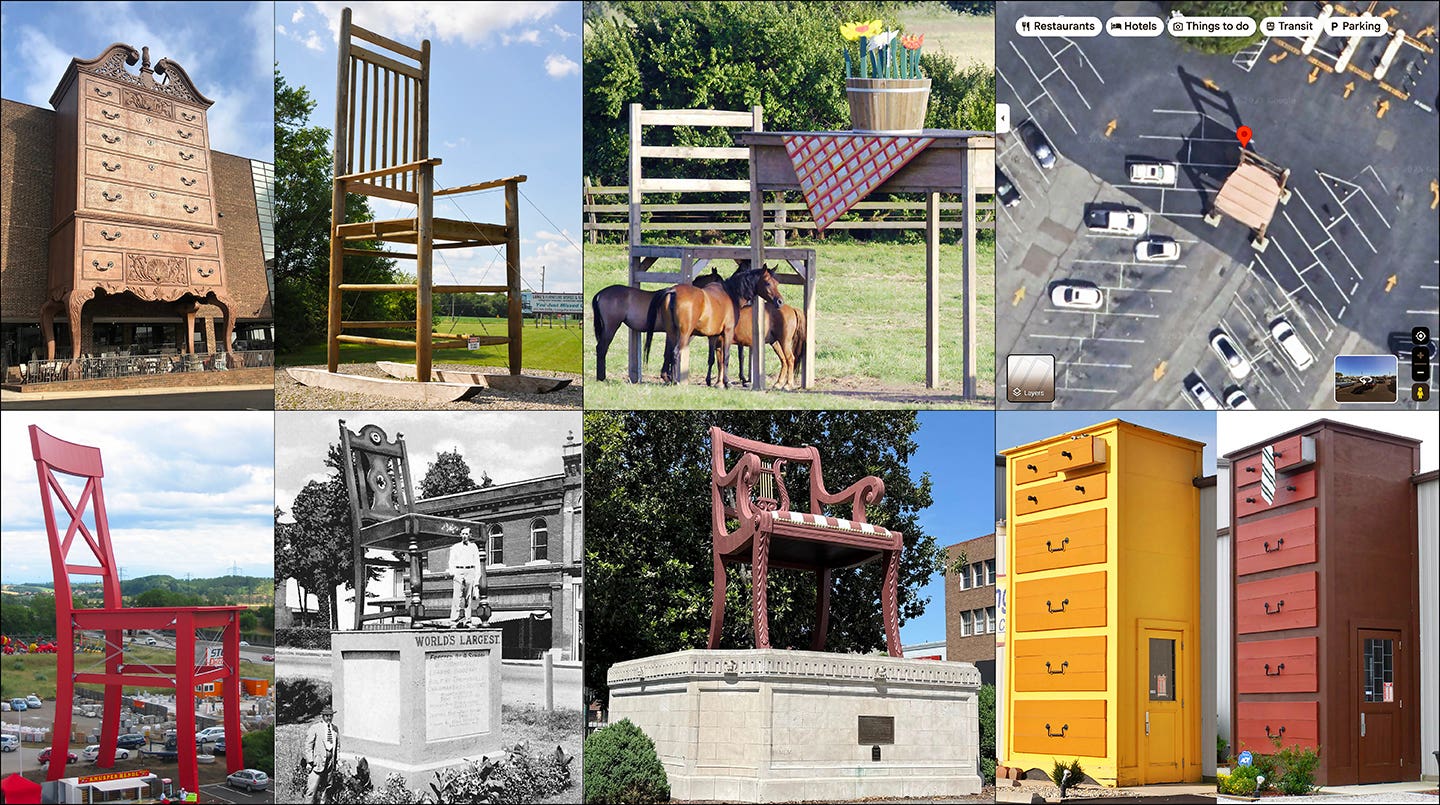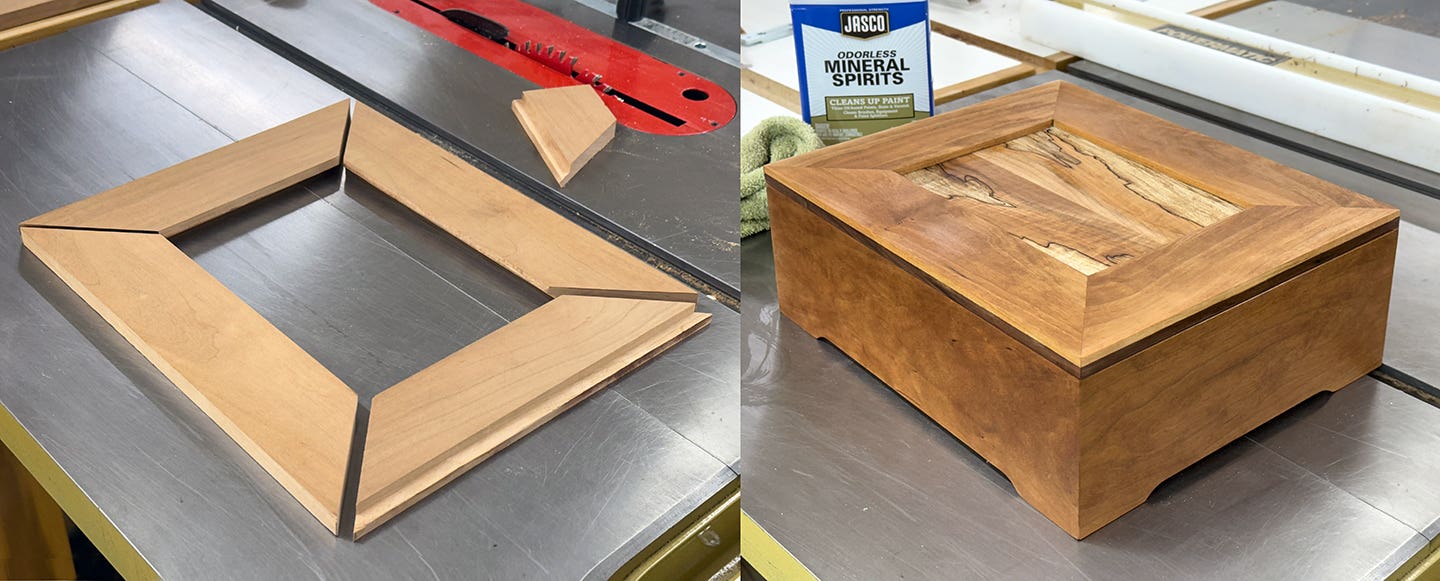Networking with other shops can increase your bottom line
Your shop’s work flow will be smoother and become more profitable when you decide not to do everything in-house {loadposition position10} Most shops are better at one thing than another….
Your shop's work flow will be smoother and become more profitable when you decide not to do everything in-house
{loadposition position10}
Most shops are better at one thing than another. While there are certain woodworking components that are frequently outsourced to large production facilities, such as cabinet doors or dovetailed drawers, there is a myriad of other items available from a network of smaller shops and support companies that can greatly increase the bottom line of any business.
A business is a conglomeration of many independent functions all working together as one. Many shops, especially the smaller ones, will outsource some of their business functions such as legal, accounting, advertising and Web design. It behooves a company looking to increase its efficiency to break down each activity in their company and determine if that is an activity that is best done in-house or out. While doing everything in-house will allow for total and absolute control, it will limit you in the long run.
The best way to evaluate all the individual activities that take place during the course of a typical job is to list them sequentially and then determine if that is a strength or weakness in your company. For some activities that may be totally beyond the scope of your facility, it might be best to hand over the entire job to another company and work out some sort of finder or referral fee.
Getting the job
The first obvious step is to get potential clients to your front door. This can be done by various advertising techniques or services, but it can be difficult to correctly target the specific clientele desired. Frequently, it is easier to share a showroom with other woodworkers, preferably without competition in regards to the finished product, such as a case good manufacturer teaming up with a furniture manufacturer, or a laminate or countertop shop teaming up with a wood cabinet fabricator.
Other possible shared showroom options might include a stock furniture store looking to offer their clients a custom alternative, such as a stone supplier, appliance store, audio-visual specialty store, lumberyard, door/window store or plate glass retailer.
Sales staff
Often a shop can get so involved in the actual fabrication of a job that looking for future sales tends to take a back seat. That, of course, is fine until the current job is completed and there is no next job. Independent sales individuals can be hired on either a commission or salary basis. Another option is to share a salesperson with another shop.
Designing and engineering
While many shops may be able to sell and fabricate a particular job, the missing link in between is often daunting. The process of interfacing with architects, interior designers and general contractors can take much more time than originally anticipated. In addition, the engineering of each and every part in a large job, while each part may be relatively straightforward, can be overwhelming.
There are various companies and shops that can provide CAD and engineering services, providing complete cut lists and files for use on a CNC. Rendered 3-D drawings on large format paper are frequently more beneficial to the client than plan views and elevations on standard 8-1/2" x 11" paper. Optimization can also be supplied for shops with sliding table saws. Should exact replicas of existing carvings be needed, there are companies with very expensive 3-D laser devices that can scan an existing object and get it ready for CNC duplication.
Custom needs
For some applications, the easiest way to fabricate something is to have custom tooling, such as router bits or shaper knives, ground to the client's specifications. In addition, for profiles beyond the scope of in-house machinery, the outsourcing of complete molding runs can be especially profitable.
One of the most common outsourced products is custom laid-up sheets of veneer or plastic laminate panels. For those with in-house saws with a scoring feature or CNC machines, using prelaminated or veneered panels that are cut and then edgebanded can save countless hours of laminating each piece separately. Usually there is a local shop that has a press they cannot keep busy 40 hours a week who will gladly lay up your panels for you. This can frequently cost less and allow for smaller or unique two-sided runs than those same services provided by the larger sheet good suppliers.
Manufacturing
In the current woodworking arena, one of the easiest and most cost-effective services might be CNC cutting "by others."
There are many software programs available to shops today that will allow for a certain ease of design and engineering. By pairing up with another shop that uses the same design software and who also has a CNC, one can have all the benefits of CNC part fabrication without the need to make the time and resource investment for an in-house machine. This is not limited to flat panel machining, but can be used for solid modeling, custom tapered decorative turnings, decorative carving, "3-D printing," and either plasma or decorative metal working.
There are also some aspects of some projects that may be beyond the abilities of your facility. Frequently, jobs are multifaceted and may require a skill set that might not be available. Specifically, a job may entail both 40 kitchenettes for a large office building and the president's mahogany office with a coffered ceiling. While there are many similarities between these jobs - perhaps by finding a shop to fabricate just the sequenced matched and numbered panels and finding another one to run the custom molding profiles - the entire job could be fabricated by a shop specializing in plastic laminate construction and the woodworking portion of the job would not need to go completely to another shop.
Finishing
There is another set of specialty skills that not all shops have. No matter how excellent the construction or how efficiently and economically one produces the job, if the finish is not up to par, the job will not go well. There are individuals who specialize in all types of finishes from aniline dyes with wax, to high-gloss polyesters and everything in between, including glazing and distressing. For smaller shops, ones without registered spray booths or with dusty environments, it is often best to either send this work out or have a specialist come in on the weekends and do the finishing work. The learning curve on some of the finishes can easily eat up the profit margin on a job, so by hiring someone else to do the finishing, a shop can actually save money in the long run.
Frequently, when doing a wood library or other architectural woodworking, it is advantageous to install the whole job raw and then have the finisher go to the site, mask off the room and do all the finishing "in house." There are many advantages to this, a few being the ease of installing an unfinished product that can be sanded as needed for a correct fit and working on a product without the level of caution necessary to avoid a nick or chip where the piece would need to be taken back to the shop and refinished before the installation could continue.
Delivery and installation
Some individuals may not be as physically strong as they once were; either that or they are smarter now than in the past. Delivering a completed product can be both physically taxing and/or just not worth the pay scale of the person doing the work. With a phone call, a finished product can be blanket-wrapped, picked up on the loading dock (or garage), delivered anywhere in the world and waiting in the room in which it is to be installed. This can be especially helpful in more populated areas where there may be parking restrictions for certain types of vehicles or extreme traffic conditions. Why have full-pay employees sitting in a truck when they could take public transportation, show up on site and get in a full eight-hour day of installation? This way your skilled installers don't need to be weight lifters or young strapping individuals. It is also just as easy to have site tools and a job lockbox delivered at the same time. The tools can then be delivered back to the shop when the job is complete.
The other option, of course, is to hire another shop with a crew of skilled installers to do the entire installation. Installers often tend to make more than bench workers, so why not use their skills and meet their pay scale only when needed, and not 40 hours a week?
All in all, there are many reasons to utilize the skills, abilities, machinery and services of other shops and companies to make your shop's work flow smoother and more profitable. Outsourcing can make any shop more than they can be by themselves. Shops or individuals should also consider providing other companies with their own unique set of skills. This is a two-way street in which all parties benefit.
Jim Falk is the owner of Progressive Wood Works in Port Chester, N.Y.
This article originally appeared in the March 2010 issue.
A.J. Hamler is the former editor of Woodshop News and Woodcraft Magazine. He's currently a freelance woodworking writer/editor, which is another way of stating self-employed. When he's not writing or in the shop, he enjoys science fiction, gourmet cooking and Civil War reenacting, but not at the same time.







